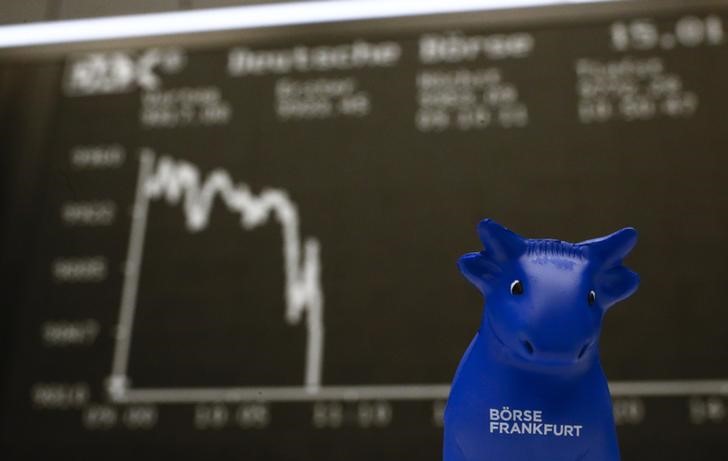Investing.com - European stock markets edged lower Friday, consolidating after the previous session’s sharp gains as investors digested a series of policy decisions from the world’s major central banks.
At 03:05 ET (07:05 GMT), the DAX index in Germany traded 0.6% lower, the CAC 40 in France fell 0.3% and the FTSE 100 in the U.K. dropped 0.5%.
Central banks in focus
The main European indices are on course for strong weekly gains in the wake of the Federal Reserve cutting interest rates by a hefty 50 basis points on Wednesday, starting a rate-cut cycle to shore up the economy following a prolonged battle against surging inflation.
The Bank of England and Norway’s Norges Bank both held rates steady on Thursday, while on Friday the Bank of Japan left interest rates unchanged as widely expected, and said that it continued to expect outsized growth in the Japanese economy amid a steady uptick in inflation.
The People’s Bank of China also kept its benchmark lending rate unchanged on Friday despite increasing calls for more stimulus.
German producer prices fall in August
The European Central Bank cut its key interest rates by 25 basis points after a similar move in June, and could accelerate these cuts over coming months, governing council member Fabio Panetta said on Thursday, following the hefty Fed cut and a sluggish eurozone economy.
Data released earlier Friday showed that German producer prices fell 0.8% on the year in August, illustrating that inflation is retreating in the eurozone.
Elsewhere, British retail sales rose by a stronger-than-expected 1% in August and growth in July was revised up, official figures showed on Friday.
Crude on track for strong weekly gains
Crude prices slipped lower Friday, but were on track for a second consecutive higher week after the large cut in US interest rates helped quell some fears of slowing demand.
By 03:05 ET, the Brent contract dropped 0.2% to $74.77 per barrel, while U.S. crude futures (WTI) traded 0.1% lower at $71.08 per barrel.
The benchmarks have been recovering after they fell to near three year-lows on Sept. 10, and have registered gains in five of the seven sessions since then, including gains of over 4% this week.
Crude inventories in the U.S., the world's top producer, fell to a one-year low last week, according to official government data earlier this week, but bigger gains were held back by persistent concerns over slowing demand, especially in top importer China.
